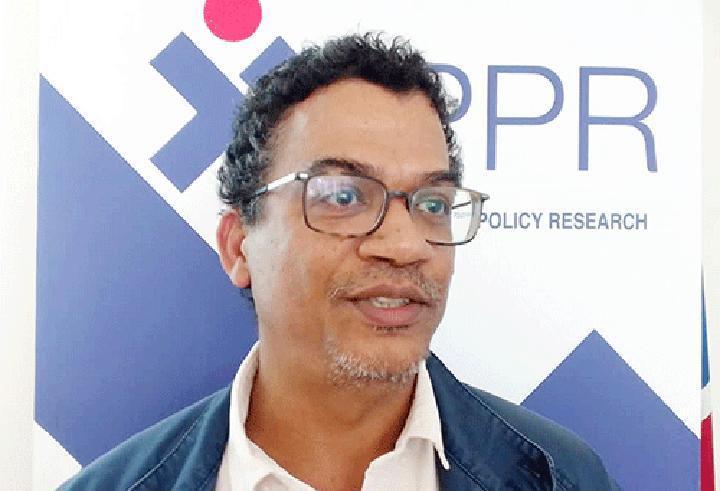Africa-Press – Namibia.
The Institute for Public Policy Research (IPPR), through its Namibia Fact Check project, has warned that the corrosive effects of disinformation threaten Namibia’s democracy.
In its latest report, Countering #Elections2024 Mis- and Disinformation, released yesterday, the IPPR highlights how smear campaigns were aimed at undermining the reputation, credibility and trust in specific candidates, political parties and institutions.
This includes the Electoral Commission of Namibia (ECN) and the entire electoral process.
“It appears that there were or are actors engaging in continuous, concerted and coordinated digital disinformation activities and campaigns. This suggests that there are political interests invested in ensuring that resources are devoted to information manipulation on the Namibian electoral landscape,” it states.
The report found that false narratives were being spread through manipulated news content and unverified online sources, making the disinformation appear credible.
Project coordinator Frederico Links said it was not only Namibian media and journalists who engaged in poor reporting in the run-up to Namibia’s November 2025 elections.
Additionally, media outlets from the Southern African Development Community and some international media outlets made errors contributing to the spread of misinformation and falsehoods.
Some of the misleading content was created or amplified by foreign actors, including influencers, and distributed via cross-border digital networks.
Links urged journalists to strengthen fact-checking practices and provide clearer context in their reporting.
He further advised media outlets to avoid sensationalism and misleading headlines.
Moreover, he said journalists to be held accountable for their errors.
The institution noted that the relevant Namibian authorities – particularly the ECN – have been underprepared to address the growing problem of digital disinformation surrounding elections.
It states that the extent to which influence campaigns have affected the attitudes of Namibian voters – especially those who are politically engaged online – remains an open question.
“The fact that foreign actors and interests have been co-opted to overtly engage in influence campaigns suggests this is a phenomenon worth prominently flagging in the interest of future elections and electoral integrity,” Links noted.
Social media
WhatsApp was identified as the primary social media platform for spreading false information during last year’s elections.
Recognising the growing role of social media in political messaging, particularly during election periods, the report highlights that politicians and political parties have used these platforms to conduct negative campaigning, including smear tactics, fake news dissemination, intimidation and incitement.
Links warned of the emerging use of artificial intelligence (AI) tools to generate content for online distribution.
He noted that AI-generated political content, including disinformation, may pose a significant political and electoral challenge in the future.
AI-generated election-related content was detected on social media and messaging platforms as early as 2024.
Links stated that Namibia’s electoral information environment was fortunate that deepfake disinformation was not an issue this time.
However, cheap fakes and AI-generated content featured prominently throughout the year.
“This clearly shows that disinformation actors were experimenting with AI tools to produce information manipulation and social media content,” he said.
More sophisticated and harder-to-detect AI-generated content, including deepfakes, is expected to appear increasingly in Namibia’s political and electoral discourse in the near future.
The researcher asserted that the abuse of social media and messaging platforms by political actors – and those associated with them – now requires serious, multi-stakeholder as well as multidisciplinary attention and collaborative solutions.
Recommendations
The IPPR has recommended that ECN formally adopt and implement principles and guidelines for the use of digital and social media in elections in Africa.
This includes collaboration on the production and distribution of accurate, accessible election-related information.
Links said Namibian authorities should lead inclusive, multi-stakeholder initiatives to develop and implement civic, media and digital literacy frameworks to combat online disinformation and safeguard information integrity.
In addition, IPPR highlighted that civil society organisations must partner with the government, the ECN and the media to protect the integrity of electoral information and support the development of comprehensive literacy strategies.
“For the news media, institutionalising fact-checking is a core editorial function as well as engaging actively in public education through media and digital literacy initiatives,” he pinpointed.
For More News And Analysis About Namibia Follow Africa-Press






